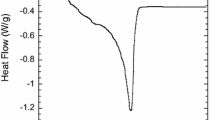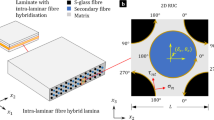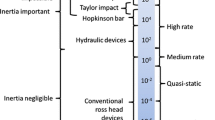Conclusions
The dependence of the relative breaking load and elongation at break of cellulose triacetate yarns and the resistance to abrasion and to repeated bending on specific viscosity of the polymer have been investigated.
On increase in specific viscosity from 0.32 to 0.41, the fibre strength rises from 9 to 11.4 cN/tex; the resistance to bending, from 1200 to 2000 cycles; the resistance to abrasion, from 1000 to 8000 cycles. The elongation at break and resistance to repeated stretching change but little with increase in specific viscosity.
Similar content being viewed by others
Literature cited
F. Mahmud and E. Catteral, Abstracts of Papers Presented at the Pittsburgh Conference and Exposition of Analytical Chemistry and Applied Spectroscopy, Atlantic City, March 8–13, 1982, p. 385.
Z. A. Rogovin, Bases of the Chemistry and Technology of Man-Made Fibres [in Russian], Khimiya, Moscow (1974), Vol. 1, pp. 485–486.
Additional information
Translated from Khimicheskie Volokna, No. 3, pp. 46–47, May–June, 1985.
Rights and permissions
About this article
Cite this article
Kryazhev, V.N., Naimark, N.I., Ratnikov, É.N. et al. Effect of the degree of polymerization of cellulose triacetate on the physicomechanical properties of yarns. Fibre Chem 17, 213–215 (1986). https://doi.org/10.1007/BF00581460
Received:
Issue Date:
DOI: https://doi.org/10.1007/BF00581460




